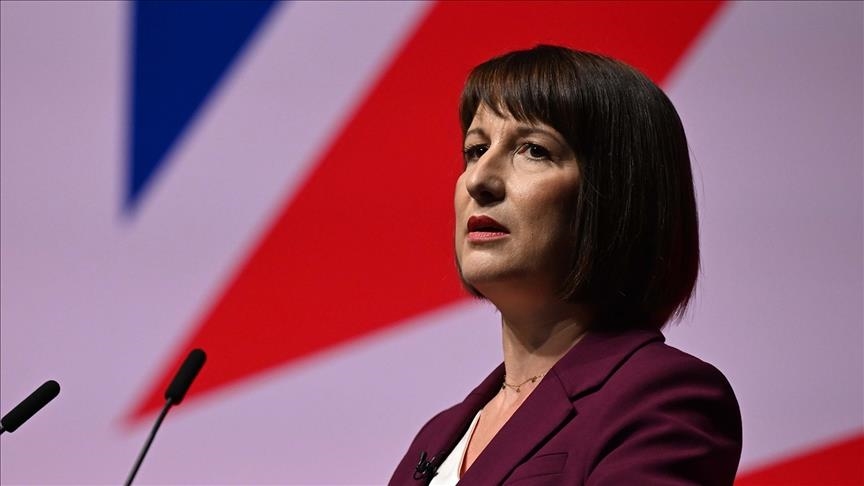UK chancellor heads to Washington with pledge to ‘stand up for Britain’s national interest’
Rachel Reeves to hold her first in-person meeting with US Treasury chief to discuss deepening UK-US economic relationship, including potential for new trade agreement

LONDON
UK Chancellor of the Exchequer Rachel Reeves vowed Wednesday to "stand up for Britain’s national interest" as she embarks on her first spring meetings with the International Monetary Fund (IMF) in Washington DC.
Reeves will engage with counterparts from the G7, G20 and the IMF, with a focus on strengthening the global economic system, promoting open trade and safeguarding working people’s livelihoods during the three-day visit to the US.
Her visit follows a sharp downgrade of the UK’s economic growth forecast by the IMF, which warned that Britain is likely to feel the effect of US President Donald Trump’s escalating trade war more acutely than other European nations.
Trump imposed sweeping global tariffs earlier this month, including a 10% levy on all UK exports.
While UK ministers have insisted that trade negotiations with the US are still ongoing, senior figures within the Trump administration have expressed skepticism about the likelihood of reaching a deal.
'We are in a new era of global trade'
“The world has changed, and we are in a new era of global trade. I am in no doubt that the imposition of tariffs will have a profound impact on the global economy and the economy at home,” she said in a statement.
She added that Britain must respond with stability and long-term planning rather than “rash action,” emphasizing her commitment to a “plan for change” that supports businesses, drives growth and defends household security.
She is expected to advocate reducing trade barriers and building stronger global partnerships, arguing open markets offer the stability businesses need and the economic security workers deserve.
Reeves will hold her first in-person meeting with US Treasury Secretary Scott Bessent to discuss deepening the UK-US economic relationship, including the potential for a new trade agreement.
“Our task as a government is not to be knocked off course,” said Reeves. “We need a world economy that provides stability and fairness for businesses wanting to invest and trade, and security for working people who want to get on with their lives.”








